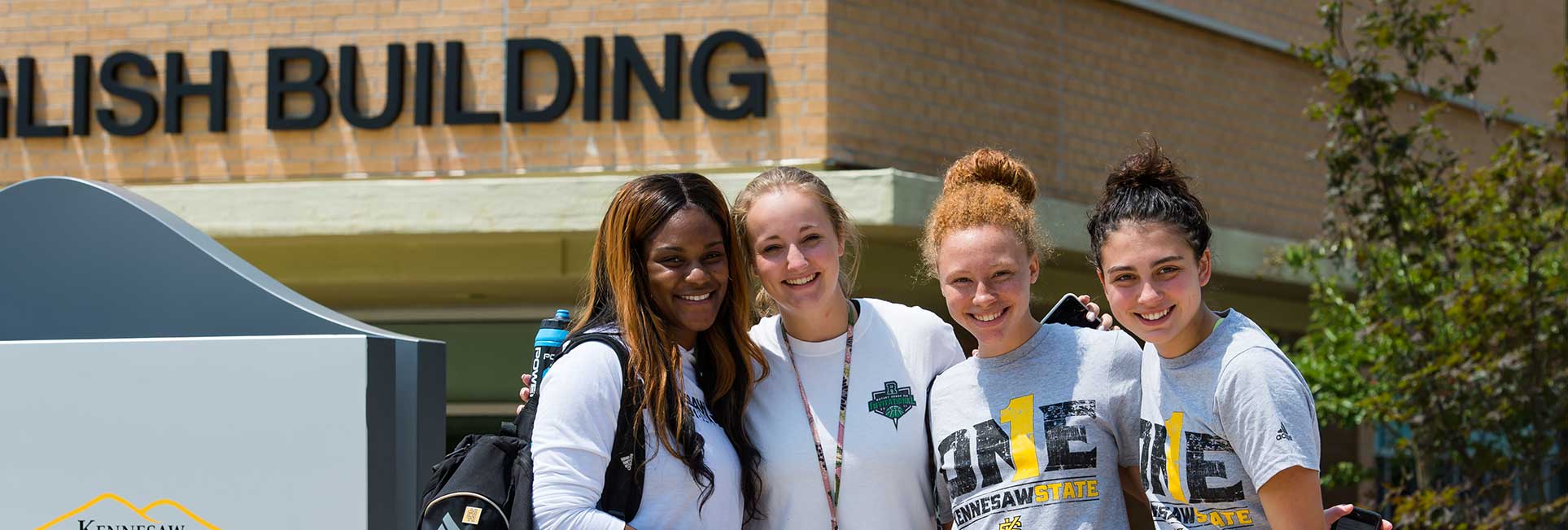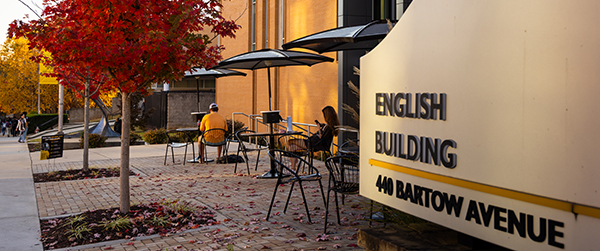Department of English Academic Distinction Statement
As a research-driven, student-centered department, KSU’s Department of English promotes the study of what is unique regarding human expression to empower students to understand who they are and how they should live, while also helping students cultivate and articulate skillsets that will enable them to thrive in viable career pathways. The department houses three degrees, English (BA), English Education (BS), and Professional Writing (MA), that honor humanistic traditions while teaching students to make a range of contributions to professional and civic life. Additionally, the department is home to core programs in First-Year Composition and General Education Literature, essential areas to KSU’s undergraduate student success ecosystem. The students the department serves are fully representative of the communities we serve in the metropolitan area and region, and we embrace high-impact practices such as mentored research, community-engaged learning, and internships in order to support their ability to succeed. The faculty, who pursue multifaceted research and creative endeavors, elevate KSU’s profile, impacting both local and global communities.
Commit to the Study and Research of English
The Department of English at Kennesaw State is committed to excellent teaching, scholarship, and service to the university and the community. With a dynamic faculty engaged in a variety of research approaches, the department models and promotes scholarship that honors humanistic traditions while making a range of contributions to university and civic life.

Gold Level for Excellence in Assessment
B.A. in English and B.S. in English Education received the highest rating of “Exceeds” on all criteria in the 2023 – 2024 Assessment of Learning Report.
Quick Links

































